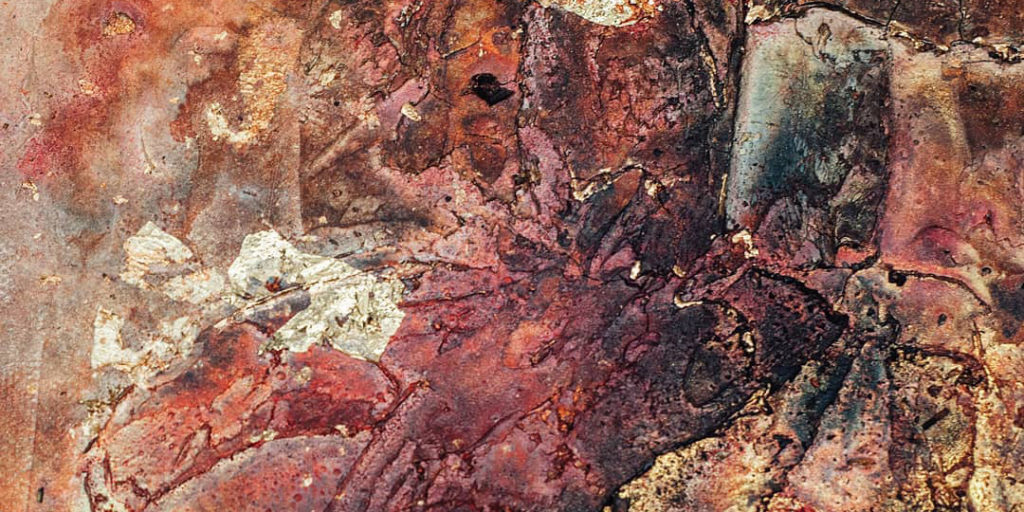
The Council of Orange: An Underrated Statement on Grace
T he new issue of Credo Magazine focuses on the creeds of the Christian Faith. The following is an excerpt from one of the issue’s featured articles by Bradley Green. Dr. Green is professor of Theological Studies at Union University.
he new issue of Credo Magazine focuses on the creeds of the Christian Faith. The following is an excerpt from one of the issue’s featured articles by Bradley Green. Dr. Green is professor of Theological Studies at Union University.
It has been said that all of western philosophy is a long series of footnotes to Plato and Aristotle. It is also the case that one might say that all of western theology is a long series of footnotes to Augustine. After Augustine (A.D. 354-430), the Western church generally followed his teachings on grace, but the Western tradition is “Augustinian” with many interesting qualifications and developments. Augustine’s theology on grace “won”—generally—in the West, although not in the East.
The Council of Orange (A.D. 529) is one of two councils in Orange (the other was in 441), and is the more important of the two. Orange itself is in the Provence-Alpes-Côte d’Azur region of France (in the south).
The Council of Orange was what is often called a “provincial” council, although Pope Boniface II confirmed its conclusions in 531. To understand the Council of Orange one must grasp something of the theological discussion and debate leading up to the council. In particular, one must understand the theological movement often labeled “semi-Pelagianism.”
The Semi-Pelagians
There are two groups who are commonly treated under the name “semi-pelagian: (1) some monks of Hadrumetum (Africa); and (2) some monks of Marseilles in southern Gaul (modern day France). Augustine would write a number of letters and four key works that are related to, or are addressing, what would eventually be called “semi-Pelagianism.” It is fair to say that both the monks of Hadrumetum and the monks of Marseilles were attempting to understand Augustine, or at least understand what they took to be entailments of Augustine’s writings. The key letters related to this controversy are:[1]
- Augustine’s Letter to Sixtus (=Letter 194)
- A Letter of Bishop Evodius to Abbot Valentine
- The First Letter of Augustine to Abbot Valentine (=Letter 214)
- The Second Letter of Augustine to Abbot Valentine (=Letter 215)
- A Letter of Abbot Valentine to Saint Augustine (Letter 216)
- The Third Letter of Augustine to Abbot Valentine
- A Letter of Prosper of Aquitaine to Augustine
- A Letter of Hilary to Augustine
Augustine’s two volumes Grace and Free Choice and Rebuke and Grace are first and foremost written in response to the monks of Hadrumetum (Africa), while his two volumes The Predestination of the Saints and The Gift of Perseverance are first and foremost written in response to the monks of Marseilles in southern Gaul (modern day France).[2]
Augustine’s Letter to Sixtus (Letter 194) generated concern and confusion amongst the monks of Hadrumetum. Augustine’s theology of grace comes through crystal clear in this letter. For example, he writes: “the one condemned is given the punishment that was deserved, while the one set free is given grace that was not deserved.”[3] He could also write that it is important to recognize that faith itself is not to be attributed to “human choice,” but is “a gratuitous gift of God.”[4]
It has been said that all of western philosophy is a long series of footnotes to Plato and Aristotle. It is also the case that one might say that all of western theology is a long series of footnotes to Augustine. Click To TweetAugustine counsels that abbot Valentine (of Hadrumetum) and his monks should affirm that two things both exist: (1) “the free choice of a human being” and (2) “the grace of God without the help of which free choice can neither turn back to God nor make progress toward God” (“free choice” and grace should not be set against each other as antitheses).[5]
Moving to the monks of Gaul, Prosper of Aquitaine writes a letter to Augustine (Letter 225). Prosper in his letter summarizes the responses of the monks of Marseilles. Some accept Augustine’s teaching. Others object that what Augustine teaches seems at odds with the tradition of the Church up until that time. But the heart of the concerns seems to be classic issues related to notions of the sovereignty of God, and any notion that salvation might be particularized on the part of God. Prosper summarizes the teaching of his monks in Gaul:
Every human being certainly sinned, and no one can be saved by his own works but only by rebirth through the grace of God. All human beings without exception have, nonetheless, been offered the reconciliation that is present in the mystery of the blood of Christ, so that whoever chooses to come to the faith and to baptism can be saved. God, however, foreknew prior to the creation of the world those who were going to believe or who were going to continue in that faith, which after its reception needs the help of grace, and he predestined for his kingdom those whom he foresaw would, after having been gratuitously called, be worthy of election and would leave this life by a good death.[6]
For the monks of Marseilles, it cannot be the case that God gives a gift of perseverance that those who receive it will indeed persevere. Such a view (as Augustine’s), the monks assert, denude the importance of exhortation; why exhort, if God’s gift of perseverance is such that persons will of course persevere, and will not choose to not persevere? Could such an understanding be consistent with true freedom? In short, any meaningful understanding of perseverance must—for the monks of Marseilles—be such that “whatever has been given to the predestined can be lost or retained by each person’s own will . . .”[7]
The Council of Orange
With that brief review of the 5th century Semi-Pelagian controversy in the background, what was happening in the 6th century with the Council of Orange? The Council of Orange consists of twenty-five canons. Interpreters have generally posited that the Council of Orange vindicated key aspects of Augustine’s theology of grace, it was clearly anti-Pelagian, it condemned (generally) semi-Pelagianism, but ultimately falls a tad short of affirming completely Augustine’s doctrine of grace.
The Council of Orange condemns the following propositions:[8]
Canon 1: “That by the offence of the disobedience of Adam it was not the whole man that was changed for the worse, but that the freedom of his soul remained unimpaired, and only his body was subject to corruption.”
In Canon 2, the council condemns the idea that Adam’s sin effected only himself and not his progeny.
Canon 3 condemns the following: “That God’s grace can be bestowed in response to human invocation, but that it is not that very grace that brings it about that it is invoked by us . . .” In short, the council here condemns the idea of that the initium fidei—the beginning of faith—can come from man alone, apart from grace.
Canon 4 is similar, for it condemns the idea that the will (voluntas) “anticipates God.” Instead the council affirms that it is through “the infusion of the Holy Spirit and his operation in us that we wish to be purged.” Again, the council is clear. Given the reality and disastrous nature of sin, Christians cannot affirm that the will “anticipates” God. How could it? Rather, God must work so that we “wish to be purged.”
Canon 5 captures the heart of the previous Canon when it denies the following: “That the beginning of faith, as well as the increase of faith and the very desire of believing . . . is not through the gift of grace . . . but is in us by nature . . .” In short, whatever one says about being created—even if creation is considered a gracious act of God—we need something from outside of us to rescue us.
Canon 6 continues in the same trajectory. It condemns the following: “That to us who, without the grace of God, believe, will, desire, etc. . . . mercy is divinely bestowed, and not that it is through the action of the Holy Spirit that we believe, etc., as we ought . . .”
Similarly with Canon 7, the council condemns: “That by the force of nature we can rightly think or choose or anything that is good . . . without the Holy Spirit’s illumination . . .”
Canon 8 condemns the notion that there is anyone who does not need grace to come to faith. It condemns: “That some can come to the grace of baptism by mercy, but others through free choice [liberum arbitrium] (which is certainly corrupted in all born since the fall) . . .”
Canon 25 affirms that we love God because He first loved us. Canon 25 states: “We were loved when we pleased him not, that there might spring up in us that which should please him (Romans 5.5).”
A further affirmation can state: “That through the sin of the first man , free choice [liberum arbitrium] was so warped and weakened that thereafter no one is able to love God as he ought, or believe in God, or do anything for God that is good, except the grace of god’s mercy prevent him.”[9]
It is important to note that the council condemns the idea that anyone has been predestined to evil by God. While Augustine (I don’t believe) ever explicitly says quite that, it is understandable that 5th and 6th century interpreters of Augustine might have concluded that this was an entailment of his theology.[10] The council could write: “But not only do we not believe that some have been predestined to evil by the divine power, but also, if there be any who will believe so evil a thing, we say to them, with all detestation, anathema . . .”For Protestants who have embraced (at least generally) a more Augustinian/Calvinistic understanding of grace and salvation, wrestling with Augustine is an endless adventure. Click To Tweet
For Protestants who have embraced (at least generally) a more Augustinian/Calvinistic understanding of grace and salvation, wrestling with Augustine is an endless adventure. And as one explores how Augustine has been accepted or appropriate in the centuries since his time, one encounters fascinating twists and turns and puzzles. The Council of Orange is certainly “Augustinian,” although it by no means attempts to answer every question raised by Augustine’s thought, nor to summarize nor state a full soteriology. But, where it does speak to issues to which Augustine had spoken, it is in line with the Doctor of Grace.
It is also worth noting that as Rome wrestled with Augustine over the years, it is probably fair to say that Augustine’s doctrine of grace was (generally) always held at arm’s length. Is B.B. Warfield right after all? Warfield wrote: “The Reformation, inwardly considered, was just the ultimate triumph of Augustine’s doctrine of grace over Augustine’s doctrine of the church.”[11] Suffice it to say that the Council of Orange—a significant attempt to wrestle with Augustine and his legacy, was one important component of a wrestling with the Doctrine of Grace that continues to this day.
*Read the remainder of Dr. Green’s article here.
Endnotes
[1] Helpfully, these are all collected in Answer to the Pelagians IV, volume 26, The Works of Saint Augustine, translated by Roland J. Teske, and edited by John E. Rotelle (Hyde Park, New York: New City Press, 2017)..
[2] All of these volumes may be found in Answers to the Pelagians IV, volume 26, The Works of Saint Augustine, translated by Roland J. Teske, and edited by John E. Rotelle (Hyde Park, New York: New City Press, 2017).
[3] Letter 194 2.4
[4] Letter 194 3.9. It is unlikely that Augustine actually denies that faith is somehow a human act (who else but the human person is exercising faith?). Rather, he appears to want to emphasize that even faith (which is inescapably a human act, it would certainly seem), is not autonomous, self-generated, or meritorious. Rather, faith is “a gratuitous gift of God.” The very fact that a sinner exercises faith is a gift of God.
[5] Augustine, Letter 214 7.
[6] “A Letter of Prosper of Aquitaine to Augustine,” 3. This letter is also known as Letter 225.
[7] “A Letter of Hilary to Augustine,” 6
[8] Conveniently, a number of these propositions can be found in Henry Bettenson and Chris Maunder, Documents of the Christian Church, 4th edition (Oxford: Oxford University Press, 2011), 64-66.
[9] The word “prevent” appears to be a rather wooden translation of the Latin “praeveniret.” This Latin word might be better translated something like “come before.” Thus, what the council is saying would be more like: “no one is able to love God as he ought, or believe in God, or do anything for God that is good, except the grace of God’s mercy comes before [to] him.
[10] As a counter-point, here is one place where Augustine speaks of God’s relationship to evil: “But if God is able, whether through the angels, either good ones or bad ones, or in some other way, to work even in the hearts of evil persons in accord with their merits, though he did not produce their malice, but they either contracted it from Adam at their origin or increased it by their own will, why is it surprising if he produces good acts in the hearts of his chosen ones, since he worked to change these hearts from evil to good?” (Grace and Free Choice 21.43).
[11] B.B. Warfield, “Augustine,” in Calvin and Augustine, ed. Samuel G. Craig (Philadelphia: The Presbyterian and Reformed Publishing Company, 1956), 322.

